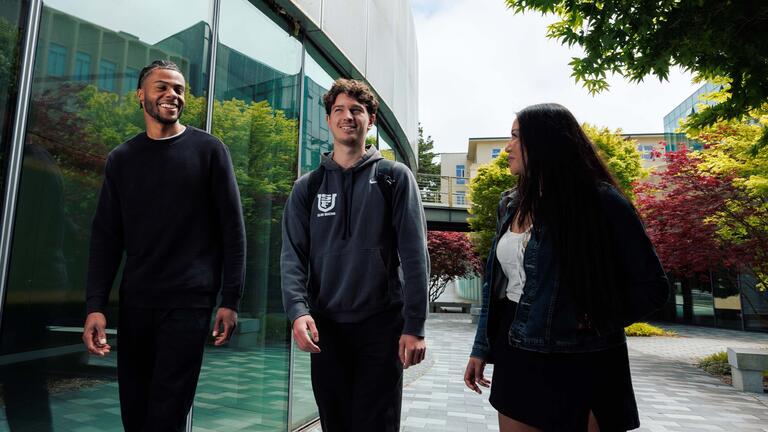
Frequently Asked Questions
Program Details
-
Many of the core IDEC classes are offered in late afternoon evening, making it possible to structure your studies in a part-time way. It is important to note that there is a mandatory two to three month summer field research period in the summer following a student’s first year in the program.
-
The program only begins in fall.
-
The Applied Economics MS degree is for students who are interested in understanding and working in the digital economy. Students learn programming and data science skills alongside their economics coursework. Typical career objectives are business analytics or data science roles in Bay Area tech firms.
The International and Development Economics (IDEC) Program, in contrast, is oriented toward field research methods and quantitative techniques for causal identification, especially relevant for understanding development. The IDEC Program has a strong independent research component that culminates in the writing of a master's thesis, often based on field research conducted abroad. Students typically pursue careers in international development, public policy, or the economics department of firms.
Both programs are quantitatively rigorous, providing a strong foundation in highly-valued data analysis skills. Students in either program are welcome to take courses in the other program as electives and may collaborate with each other on research projects. Both programs are also excellent preparation for students considering a Ph.D.
Financing Your Education
-
Learn more at the Office of Graduate Admission's Financial Aid & Tuition page.
How to Apply
-
Applicants must hold a bachelor’s degree (or equivalent), preferably in economics, from an accredited university-level institution. Some IDEC students have undergraduate degrees in a subject other than economics and, therefore, may need to take a few required undergraduate courses before enrolling in the core graduate requirements of the program. It is possible to be admitted before completing these undergraduate courses, but a student may be required to complete the necessary courses in the first semester at USF prior to starting the core coursework.
-
VIEW THE UPCOMING APPLICATION DATE
Completed applications on file before the application date are reviewed for admission and for the limited number of scholarships. Fall applications completed after the listed application date are considered for admission on a space-available basis.
-
A GPA of 3.0 or higher strengthens an application. In reviewing applications, the admission committee takes all supporting documentation into consideration, giving particular attention to academic performance in economics, statistics, calculus, and finance courses. Generally speaking, most accepted students typically have a GPA of 3.4 or higher.
-
The GRE is not required. However, you may submit GRE scores as extra supporting documentation if you feel it strengthens your application. Other test requirements can be found on our How to Apply page.
-
Courses taken from another university would need to be evaluated by the program adviser. This process of evaluation would take place after a student is accepted into the program and has his/her first advising session with the program adviser. Depending on the syllabus, the course may or may not be credited.
-
Students submit a non-refundable deposit (that is applied to your fall tuition) by the deadline indicated in the acceptance letter. If the deposit is not submitted by that deadline, the space in the fall program is not guaranteed and the admission may be canceled.
-
Each year, 20–25 students start in the program. In general, the IDEC program receives approximately 125 applications each year.
-
Please check this page to view English test score requirements and eligible exemptions.
-
Accepted students will receive their I-20 along with their acceptance letter. If the I-20 is not with the acceptance letter, it will come under separate mail within approximately 15 business days.